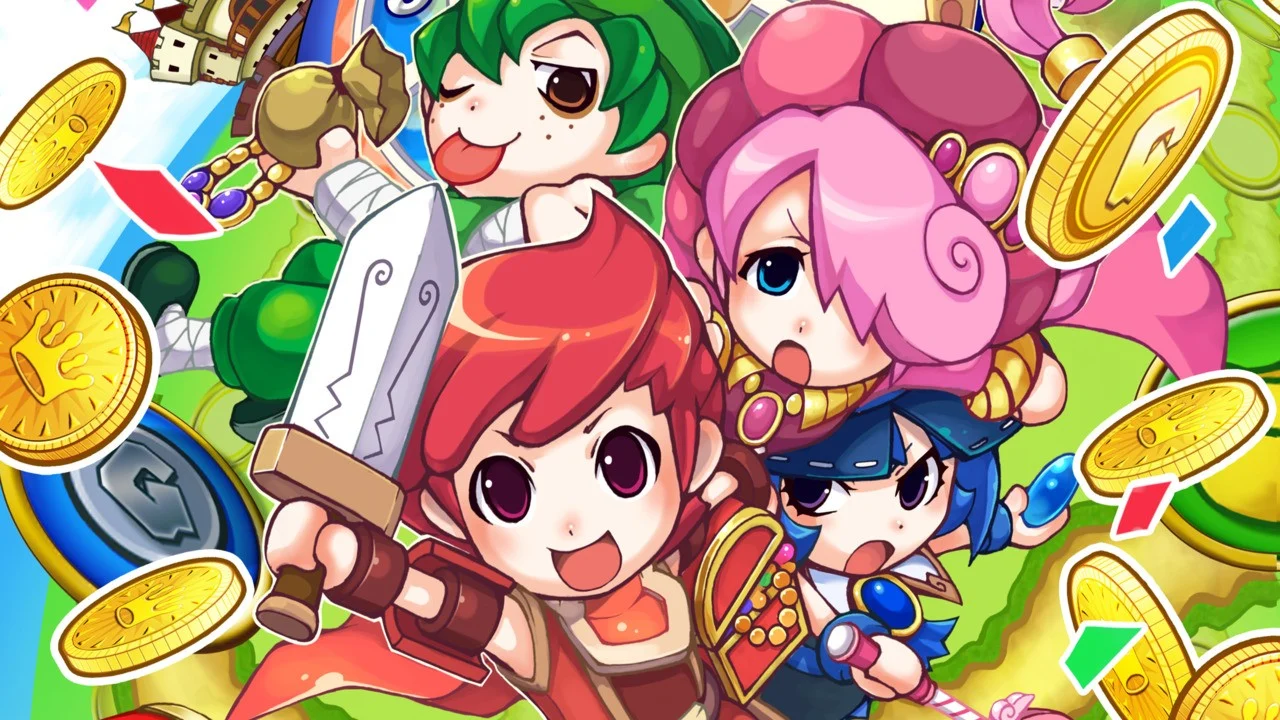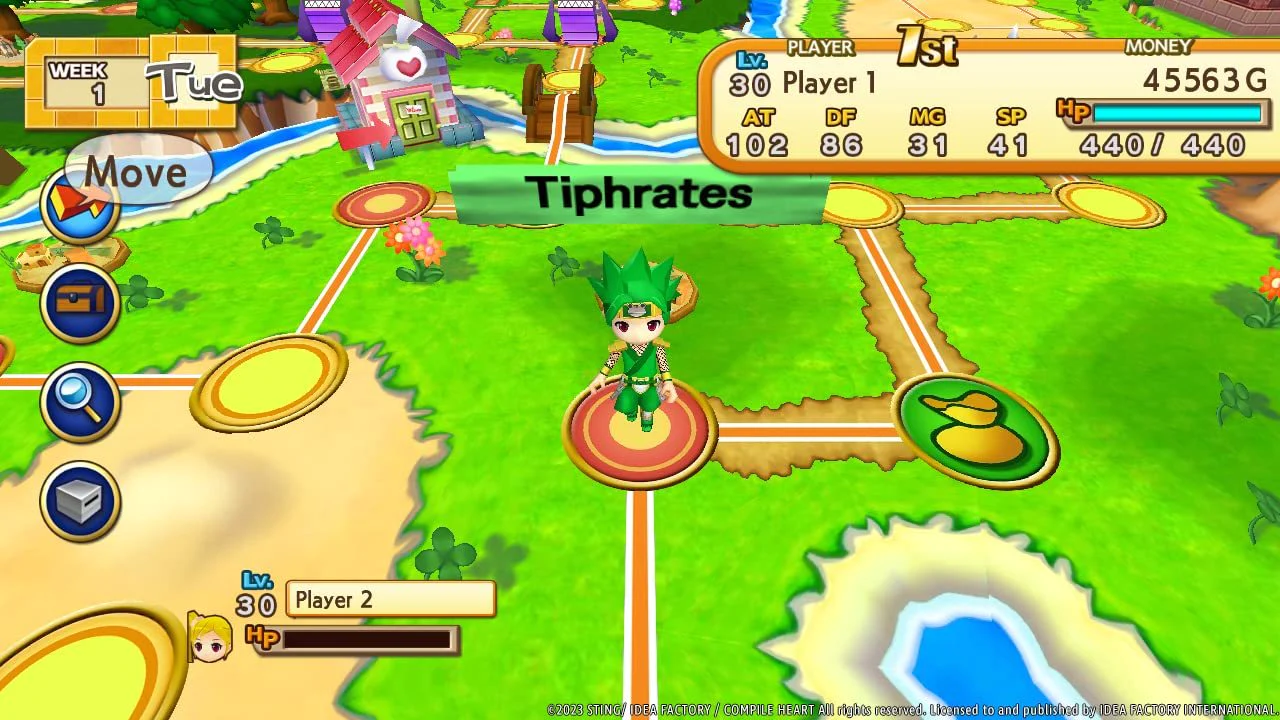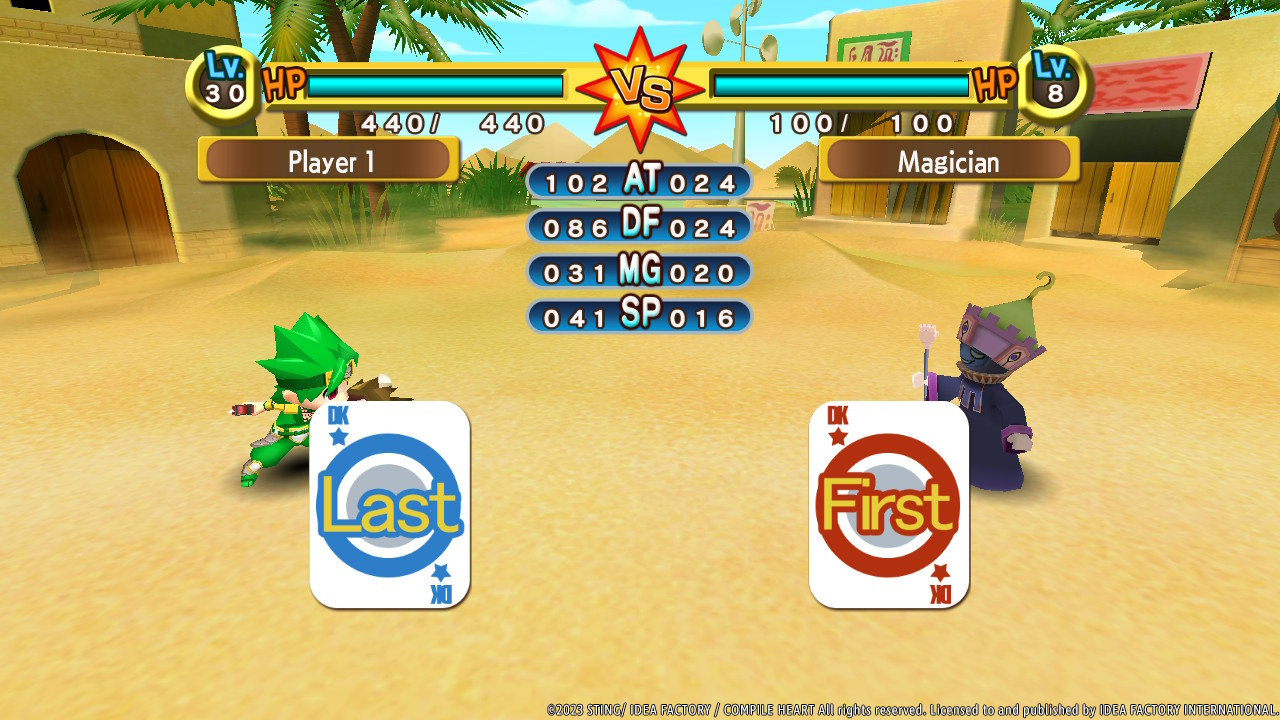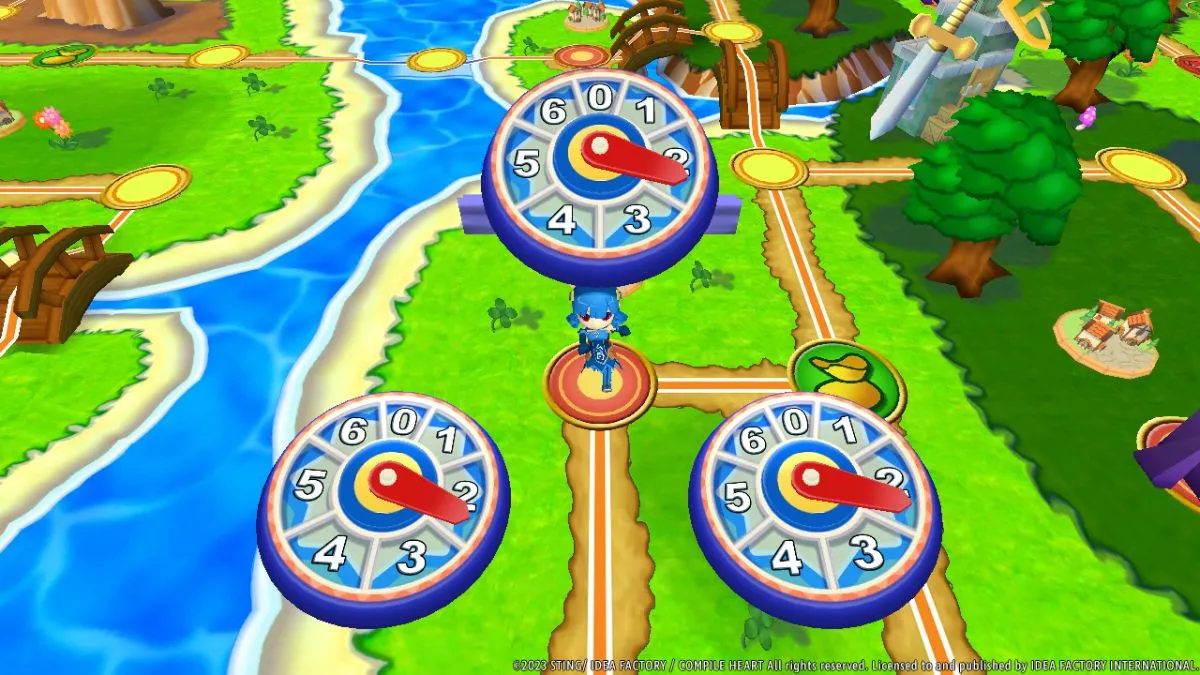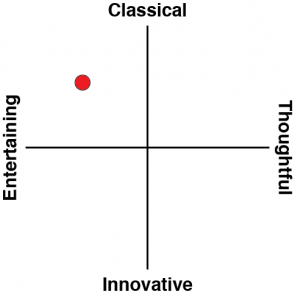Dokapon Kingdom: Connect is a clever little attempt to take the board game format, and apply it to an RPG. Just go in with the expectation that it’s the latter that only looks like the former, and you’ll be well placed to have a good time of it.
Related reading: If you love digital board games, Billion Road is essential. Our review.
The game’s premise is simple. There’s a king, and his kingdom in trouble. He offers the hand of his daughter in marriage to the hero that best defends the kingdom over a period of weeks and months. This means the hero that does the most excellent job of beating up monsters, liberating cities, and building wealth.
There are some elements that are vaguely similar to something like Monopoly or Boom Street/Fortune Street/Itadaki Street (what I wouldn’t give for Nintendo to revive that Wii classic for a remaster). Players roll a dice (or in this case, spins a spinner), and then move the allocated number of spaces across the board. If they land on a town that has been occupied by another player, they can pay a fee to rest there overnight. If they own the town themselves they can invest in it, which levels it up and makes it more expensive.
But that is such a secondary part of the game that it’s almost negligible. Dokapon Kingdom’s real meat is the combat system. Most of the time, when you land on a blank space, or a town for the first time, you’ll fight a monster. “Field” monsters are relatively weak, whereas town monsters are more powerful as “bosses”. Once in combat, there are two rounds – you’ll attack once, and defend once. Both times you have four skills to choose between (and, as with something like Pokemon, as your character levels up, they’ll gain access to more powerful skills). If you defeat your opponent in that time, you get loot and experience from them. If they defeat you, you’re sent back to the king’s castle and have a penalty of a couple of turns to sit through. If neither wins, the combat will continue on your next turn.
There are also items and spells you can find in the world and use to boost yourself or attack your opponents. Additionally, random events happen periodically. Overall there’s good variety in the events and enemies to combat, but for the most part, Dokapion Kingdom has a gameplay loop that takes about an hour to learn. After that, it becomes an entertaining but grindy entry-level JRPG experience. Just with turns and board spaces and such.
Weirdly enough, the closest comparison I can think of is Hero Quest, a board game from the 90s that every millennial nerd grew up adoring. It recently got revived and production began anew and just about everyone I know of my age picked themselves up a copy. Of course, it was nostalgia driving that purchasing decision. In practice, it’s a very simple board game indeed. Hero Quest is good for a night of fun over beers, but as a game, it is, to put it generously, best thought of as a gateway drug to proper RPGs.
Dokapon Kingdom is like that. It’s a casual “gateway” JRPG. The kind of thing you could give to someone, and if they loved it, you could hit them with all your favourite JRPG recommendations. It’s got all the basics in there. And it actually works better when played that way because as a multiplayer party experience, Dokapon Kingdom has a bad pacing issue. With the standard “default” mode, you want to be playing for at least 30-40 weeks of in-game time. The first 20 weeks or so players won’t venture far from the main city, because your character will be too weak to fight anything serious. However, as characters level up, they can venture further afield and the map is absolutely massive. A full year would be a better way to play to try and see everything, but that would take hours, upon hours, upon hours, and then some more hours. Most board games aim for a 2-3 hour run length, at most, but it’s a very modest and underdone game of Dokapon Kingdom that will be over in that time.
There are alternative ways to play that have a less epic arc, such as handing the player that defeats a certain enemy first the victory, but those also feel like an incomplete version of the game, dressing the systems down for the sake of (approximate) brevity. No, if you’re planning to play this one, prepare yourself for something that will kill your week.
There will be some people that do love this, however, because this game is bright, charming, and often laugh-out-loud amusing. The various monsters that you fight along the way are all adorably cute takes on classic JRPG tropes, but it’s the person-to-person battles that are the most fun. If you manage to defeat your opponent, you can be cruel and steal their stuff… or you can just change their name or character’s hairstyle to something cheeky instead. “Poo Head,” for example. Yep. This game will bring out the best and most mature qualities in you.
One final note: The game is brutally difficult when it wants to be. If you’re not levelled enough, and explore a touch too far, you’ll run into something that will crush you, and when that happens it’s a couple of frustrating turns where you can’t do anything. The AI can also be merciless and cruel (and always seems to get the “dice rolls” that they need), unless you set them to the lowest level (at which point they’re ridiculously easy to overcome). Dokapon comes from the PS2/Wii era, and it certainly has that era’s approach to AI.
Dokapon Kingdom Connect is a very niche thing indeed. But it’s silly, wacky, colourful and charming. Everyone in the household can have a laugh with it, and putting aside the old school “cheating” AI, it’s mechanically sound. It’s no replacement for Boom Street/Fortune Street/Itadaki Street, but it’s not a bad substitute, and might be on high rotation on your Switch longer than you think.
